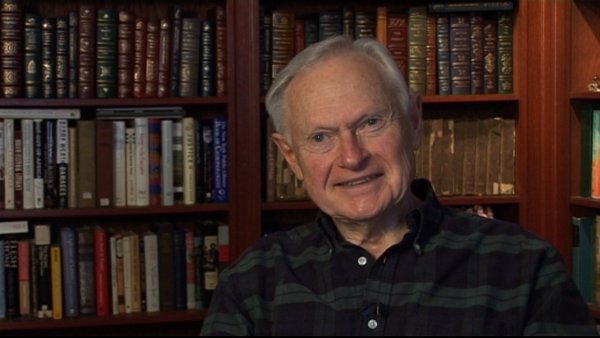NEXT STORY

The concept of a changing brain
RELATED STORIES

NEXT STORY

The concept of a changing brain
RELATED STORIES


|
Views | Duration | |
|---|---|---|---|
| 31. The first book - Doctors: The Biography of Medicine | 270 | 03:01 | |
| 32. My way to The New Yorker | 260 | 03:21 | |
| 33. An idea for a book worth writing | 270 | 03:55 | |
| 34. Working on How We Die | 290 | 02:42 | |
| 35. Who will publish How We Die? | 247 | 02:59 | |
| 36. The great success of How We Die | 283 | 05:19 | |
| 37. My method of writing | 286 | 04:04 | |
| 38. The concept of a changing brain | 261 | 02:38 | |
| 39. How our brains work | 297 | 03:33 | |
| 40. 'Hey boy, have you seen the eyes of that scrub nurse?' | 261 | 02:05 |


I have to describe what it's like to write, because I don't have a method, but I have a method, which is to have no method. I've never made an outline, I've never planned an essay or a chapter. Essentially, what happens is that a beginning sentence comes to me, and I like its rhythm and I like the way it feels, and I like the way it sounds when I say it out loud, and I sit down and I start to write with a pencil and a tablet of paper. I write on every other line, and I just keep writing. And when the chapter is over, I reread it, and I might cross out words because, of course, I've left every other line blank, I can put a word in here, a sentence in there. I will usually then rewrite it, change little things that I need to, not a lot, just a little. And that is the copy from which I type it into the computer. And I'm still making revisions, but only revisions in individual words, only deciding that I need a comma here or a semicolon there, or dashes instead of brackets, that kind of thing. But essentially, that first writing, with the pencil on the paper, that gets fixed up a little bit as I go along the way, is essentially it.
I remember being interviewed after Lost in America, my memoir, came out, by Alex Witchel for The Times. She's Frank Rich's wife and she's… actually a terrific writer of her own. She came up here to interview me, and she was having a little trouble believing that I just wrote this stuff, so at that time, I had sort of a little office box made of plastic, in which I had all the tablets in which I'd written the book, and I got up and I just pulled one out, and I said, you know, if you want to look at page 52 to 79 and compare it with this, you're going to find out it's almost exactly the same thing, because my books are very lightly edited. Nothing I've ever written has been very much edited.
So, I sit down and I write, but according to what scheme? Again, according to no scheme. I just let my subconscious go and when I read through the final manuscript of How We Die, again written with no plan except that one chapter would be on stroke and one chapter would be on Alzheimer's and one chapter would be on AIDS, when I read through that thing, even though I had read individual chapters as I went, I realized right away that the book had a beginning, it had a middle, it had a perfectly logical endpoint and the thing read as if I'd planned it out carefully, and I hadn't done a thing to plan it.
Sherwin Nuland (1930-2014) was an American surgeon and author who taught bioethics, the history of medicine, and medicine at the Yale University School of Medicine. He wrote the book How We Die which made The New York Times bestseller list and won the National Book Award. He also wrote about his own painful coming of age as a son of immigrants in Lost in America: A Journey with My Father. He used to write for The New Yorker, The New York Times, Time, and the New York Review of Books.
Title: My method of writing
Listeners: Christopher Sykes
Christopher Sykes is a London-based television producer and director who has made a number of documentary films for BBC TV, Channel 4 and PBS.
Tags: Lost in America, The New York Times, How We Die, Alex Witchel, Frank Rich
Duration: 4 minutes, 4 seconds
Date story recorded: January 2011
Date story went live: 04 November 2011